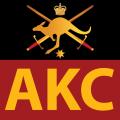A note from The Cove Team: This article was published in Smart Soldier 64, May 21. You can access the full edition on the DPN in the Army Lessons Online page. (Tip: Search for Army Lessons and select the second search option).
Enduring Leadership Themes
This article will provide a summary of the key themes and trends of Army leadership experiences gained through training, exercises and operations during the past 20 years, and which are contained within the Army Lessons database. Army Lessons critically analysed approximately 2000 observations, made by soldiers and officers of all ranks and corps, in barracks and on operations, to identify significant trends in the leadership data. The most common themes discussed in this article are effective personal qualities and attributes.
Before examining the themes in detail, it is important to acknowledge the role that context plays in leadership, as the data demonstrates that although the basic tenets of leadership are enduring, leadership style and application must adapt to any given situation.
Effective personal qualities and attributes. The most important features of a leader are their personal attributes. Prominently featured qualities include integrity, decisiveness and drive, critical and agile thinking skills, professionalism and emotional intelligence. Integrity remains an enduring personal quality of a leader. When discussing integrity, the components detailed below are relevant and should be considered as pre-requisites.
Leading by example and maintaining standards. Although this is a practical and demonstrable aspect of leadership, it forms an important part of integrity. Several interviewees have indicated that leaders need to set, maintain and demonstrate high standards, particularly when directed to complete unsavoury tasks. A 2IC found that his soldiers increased their efforts and performance by his active participation for 10 minutes in the completion of a task. There are many more instances in which this trait features and it is linked most often to self-discipline and moral courage.
Self-discipline and moral courage. One JNCO stated that 'good leaders need to have the discipline to go the distance. Good self-discipline ... is about having the ability to pull yourself up and correct something in your own actions, which you are not doing right'. This includes the ability to reflect on personal strengths and weaknesses and actively seeking to fix them. Moral courage is not only demonstrating self-discipline, but disciplining others when they are doing the wrong thing or advising higher ranks if an incorrect decision is made.
Taking responsibility for decisions and make tough decisions objectively. Several interviewees have concluded that it is important for leaders to own their decisions. Leaders must have an inclusive leadership style but still be decisive when required. They must remain mission focused, decisions made must be objective, utilising critical thinking skills, and not be based upon emotions. A sergeant on Operation SLIPPER noted that he was impressed by the platoon commander's ability to remain cool and calm under fire, and make decisive and clear decisions.
The ability to be an agile and critical thinker was considered to be important. As one Major stated, 'If our current wars have taught us anything, it is that we need thinking leaders who can train and lead thinking soldiers'. Additionally, many interviewees were in favour of soldiers asking questions and understanding the 'whys' of what they were doing, as soldiers who do not question orders occasionally, are not thinkers.
Utilising the knowledge of all members of the team featured highly in the data. It was thought that a good officer recognises the specialist skills of the people under their command and is able to utilise these skills. It was suggested that good ideas can come from soldiers and that leaders should listen to those ideas and properly evaluate them when making decisions. Interviewees considered the ability to take advice from both superiors and subordinates to be an admirable trait, and would gain them instant respect. They recommended that leaders create an environment where juniors can contribute to the conversations so they can learn to think critically, reflect upon their own ideas and feel that they are valued members of the team, but also follow orders when the decision is made.
As one JNCO suggested, 'within the Australian Army, the term professionalism goes hand-in-hand with leadership'. The confidence and the ability to communicate ideas or plans are the necessary qualities of a leader. A group of soldiers stated that a good leader is someone who is respected and confident, an approachable people person who can talk to anybody and does not shout. As a leader, you always have to be thinking about the balance between being approachable and being too approachable. Nobody teaches you to do this - you have to learn this by experience.
The necessity for a leader to have a high level of Emotional Intelligence is an emerging trend. While this is traditionally considered to be the application of the 'human touch', in military terms it could be considered as a tool used to understand and shape human terrain. This can be in the context of own troops, working with others (in a combined, joint, coalition, government or non-government setting), building professional relationships or understanding cultural differences and diversity. It is the ability to empathise and influence others, build teams, and get the most out of subordinates, as well as understanding how you should or tend to react to different situations. Leaders need an ability to build strong professional relationships and develop trust with subordinates, peers, and superior officers as a means to implement effective mission command and create the right conditions for initiative.
Conclusion
This article has identified a number of enduring and emerging leadership themes relevant to current and future domestic and overseas operations. The data demonstrates that although the basic tenets of leadership are enduring, leadership style and application must adapt to any given situation.
The themes in this article were extracted from an Army Lessons Quicklook report ‘Australian Army Leadership Themes and Observations’ for the Australian Army Leadership Programme, and is available on the Army Knowledge Online portal.









